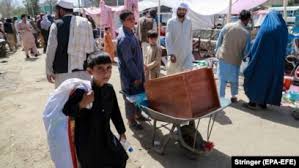The main reasons for the economic crisis in Afghanistan
The economic crisis in Afghanistan has several reasons that are influenced by internal and external factors. The following are the main reasons for this crisis:
- Political instability
• Sudden change of power: The fall of the previous government and the dominance of the Taliban in 2021 caused economic mistrust and reduced domestic and foreign investment.
• Non-recognition of the Taliban: The government of the Taliban is still not recognized by most countries of the world. This has limited Afghanistan’s economic and commercial interactions with the international community.
- Freezing national assets
• After the Taliban came to power, about $9 billion of Afghanistan’s foreign exchange reserves were frozen by foreign banks, particularly in the United States.
• This issue has limited the Central Bank of Afghanistan’s access to financial resources to control inflation and provide liquidity.
- Stop international aid
• Before the Taliban took over, Afghanistan was heavily dependent on foreign aid, which provided about 75% of the government’s budget.
• The cutoff of these aid has halted many infrastructure projects and public services and increased the unemployment rate.
- Drought and agricultural problems
• Dependence on agriculture: A large part of Afghanistan’s economy is based on agriculture.
• Successive droughts: Climate changes and successive droughts have reduced the production of agricultural products and threatened the livelihood of many people.
- International sanctions
• The imposition of restrictions and sanctions against the Taliban has affected foreign trade and money transfers.
• These sanctions have reduced Afghanistan’s access to international markets.
- Administrative corruption and mismanagement
• Extensive corruption in government institutions and weak management in the use of financial and natural resources have reduced the opportunities for economic development.
• Inefficient tax system and lack of transparency in the collection and use of revenues have increased the economic pressure on the people.
- Unemployment and reduced purchasing power
• The suspension of many businesses and the withdrawal of foreign investors has increased unemployment.
• The devaluation of the national currency and the increase in the price of basic goods have reduced people’s purchasing power and spread poverty.
- Stopping foreign trade
• The decrease in exports, especially in the field of agricultural products and handicrafts, due to the decrease in demand and logistical problems, has limited the country’s foreign exchange earnings.
• Trade restrictions with neighboring countries have also negatively affected access to basic goods and raw materials.

